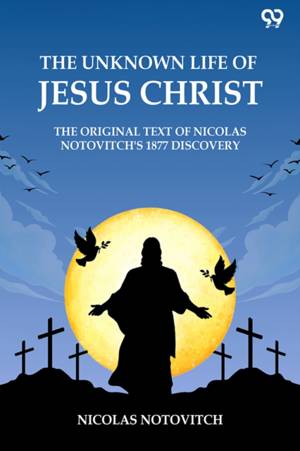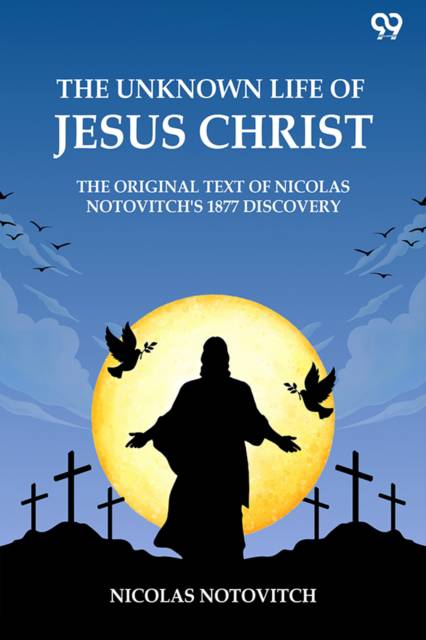
- Afhalen na 1 uur in een winkel met voorraad
- Gratis thuislevering in België vanaf € 30
- Ruim aanbod met 7 miljoen producten
- Afhalen na 1 uur in een winkel met voorraad
- Gratis thuislevering in België vanaf € 30
- Ruim aanbod met 7 miljoen producten
Zoeken
The Unknown Life Of Jesus Christ The Original Text Of Nicolas Notovitch's 1877 Discovery
Nicolas Notovitch
Paperback | Engels
€ 20,95
+ 41 punten
Omschrijving
The unknown life of Jesus Christ: The original text of Nicolas Notovitch's 1877 discovery presents a narrative rooted in spiritual inquiry and cross-cultural exploration. Through firsthand accounts of travel and dialogue with Tibetan monks, the text offers an alternative perspective on the figure of Jesus, referred to as Issa, as remembered in ancient Tibetan chronicles. It invites readers to consider a broader historical and religious context by examining claims of Jesus s presence and teachings beyond traditional Western narratives. The work emphasizes the pursuit of spiritual truths through unfamiliar paths, challenging conventional religious boundaries and engaging with overlooked records. It underscores the author's efforts to bridge disparate traditions, particularly Christianity and Buddhism, by highlighting shared values and philosophical overlaps. The journey through monasteries and rugged landscapes becomes symbolic of an inward search for understanding. This book does not merely recount physical travels but foregrounds the intellectual and spiritual challenges of uncovering hidden knowledge. By positioning suppressed histories and overlooked scriptures at the center, it argues for the value of openness in religious thought and the possibility that accepted accounts may leave out vital elements of a greater spiritual story.
Specificaties
Betrokkenen
- Auteur(s):
- Uitgeverij:
Inhoud
- Aantal bladzijden:
- 94
- Taal:
- Engels
Eigenschappen
- Productcode (EAN):
- 9789371130479
- Verschijningsdatum:
- 1/05/2025
- Uitvoering:
- Paperback
- Formaat:
- Trade paperback (VS)
- Afmetingen:
- 140 mm x 216 mm
- Gewicht:
- 117 g

Alleen bij Standaard Boekhandel
+ 41 punten op je klantenkaart van Standaard Boekhandel
Beoordelingen
We publiceren alleen reviews die voldoen aan de voorwaarden voor reviews. Bekijk onze voorwaarden voor reviews.












